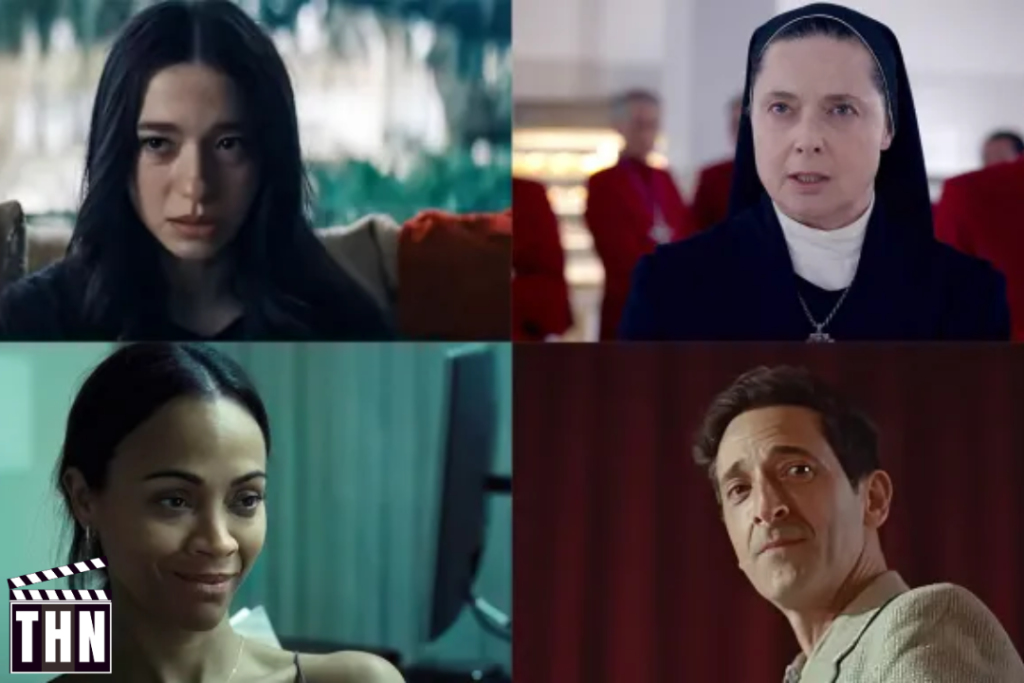The Academy Awards, Hollywood’s most prestigious night, is often shrouded in suspense and unpredictability. But what if we could strip away the mystery and predict the winners using nothing but math? With data from awards season trends, historical patterns, and statistical probabilities, some analysts believe numbers can reveal who will walk away with Oscar gold. As the 97th Academy Awards loom on March 16, 2025, let’s dive into how math might help us forecast this year’s winners.
The Formula Behind the Gold
Predicting Oscar winners mathematically involves analyzing several key factors:
- Awards Season Momentum: Wins at precursor ceremonies like the Golden Globes, BAFTAs, and SAG Awards often indicate a frontrunner.
- Historical Trends: Certain genres and roles (e.g., biopics and transformative performances) tend to resonate more with Academy voters.
- Nomination Count: Films with a high number of nominations statistically have better odds of winning major categories.
- Critical and Audience Reception: High scores on review aggregators like Rotten Tomatoes or Metacritic can sway predictions.
- Voting Patterns: Historical voting behavior of Academy members is factored into models.
By assigning weights to these variables, analysts create predictive models to calculate the probability of each nominee’s victory.
Best Picture: A Close Race
This year’s Best Picture race is one of the tightest in recent memory. Early frontrunners included The Brutalist and Emilia Pérez, but controversies surrounding both films have shifted momentum. Sean Baker’s Anora has emerged as a favorite due to its critical acclaim and strong showing at precursor ceremonies.
Mathematically speaking:
- Anora boasts an 85% chance of winning based on its multiple wins this season.
- Conclave, a mainstream favorite, follows with a 70% probability due to its wide appeal among voters.
- The Brutalist lags slightly at 65%, as its use of AI in production has sparked debate within the industry.
While math points to Anora, surprises are always possible in this category. Historically, films that win Best Director often secure Best Picture as well, making Sean Baker’s chances even stronger.
Best Actor: A Two-Way Battle
The Best Actor category is shaping up as a showdown between Adrien Brody (The Brutalist) and Timothée Chalamet (A Complete Unknown). Brody has dominated early awards like the BAFTAs and Critics’ Choice, but Chalamet’s surprise SAG win has shifted momentum.
Statistical analysis reveals:
- Chalamet has a 60% probability of winning due to his role in a biopic—a genre that historically fares well with the Academy.
- Brody follows closely with a 55% chance, bolstered by his transformative performance as a Holocaust survivor.
Math suggests Chalamet may edge out Brody, especially since younger actors portraying real-life figures often capture voters’ attention.
Best Actress: Demi Moore Leads the Pack
In the Best Actress race, Demi Moore (The Substance) appears to be the clear favorite. Her ferocious portrayal of an aging star fighting for relevance has swept major awards this season, including the Golden Globes and SAG Awards.
The numbers break down as follows:
- Moore has a commanding 90% chance of winning based on her awards season dominance.
- Mikey Madison (Anora) trails with a 50% probability despite her critically acclaimed performance.
- Fernanda Torres (I’m Still Here) holds a 40% chance due to her film’s international acclaim but lack of precursor wins.
Hollywood loves a comeback story, and Moore’s narrative aligns perfectly with past trends favoring seasoned actors returning to prominence.
Best Supporting Categories: Wildcards Abound
Supporting categories are notoriously unpredictable. In Best Supporting Actor:
- Kieran Culkin (A Real Pain) leads with a 75% chance after his Independent Spirit Award win.
- Yura Borisov (Anora) follows at 60%, buoyed by his film’s overall momentum.
For Best Supporting Actress:
- Karla Sofía Gascón (Emilia Pérez) holds a slim lead at 65%, though her film’s controversies could impact votes.
- Florence Pugh (The Substance) trails at 50%, despite strong critical support.
These categories often produce surprises, making them harder to quantify mathematically.
The Role of Scandals and Surprises
While math provides clarity, it cannot account for last-minute controversies or emotional voting decisions. For instance:
- Emilia Pérez, once a frontrunner for multiple awards, saw its chances plummet after social media backlash against its director.
- Similarly, The Brutalist faced scrutiny over its use of AI technology, complicating its path to victory despite early momentum.
These factors introduce unpredictability that even the most sophisticated models struggle to incorporate fully.
Can Math Predict Everything?
While statistical models are increasingly accurate—correctly predicting winners in over 80% of categories last year—they are not infallible. Human emotions and subjective preferences play significant roles in voting. For example:
- In 2017, La La Land was mathematically favored for Best Picture but lost to Moonlight in an unforgettable upset.
- Similarly, Glenn Close was heavily predicted to win Best Actress in 2019 but lost to Olivia Colman in a shocking twist.
Math can guide predictions but cannot guarantee outcomes when sentiment overrides logic.
The Final Word
As we approach Oscar night, mathematical predictions point toward major wins for Anora, Timothée Chalamet, and Demi Moore. However, the Oscars have always been as much about surprises as they are about recognition. While data can offer insights into likely outcomes, it’s the human element—the passion behind performances and stories—that ultimately decides who takes home gold.
Whether math gets it right or not this year, one thing is certain: the Oscars remain an event where artistry triumphs over algorithms. And that’s what keeps us watching year after year.


